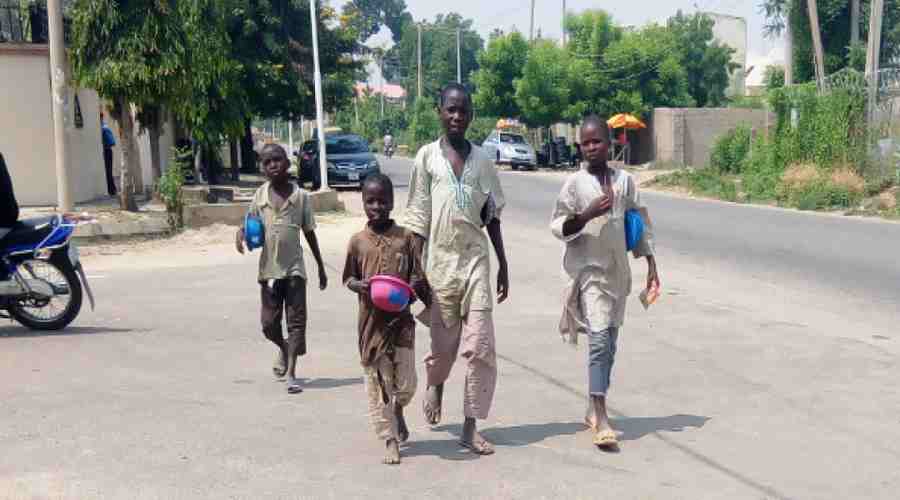Tackling the escalating out-of-school children in Northern Nigeria
In Northern Nigeria, the escalating number of out-of-school children presents a significant challenge to the region’s development and future prospects. The complex interplay of socio-economic, cultural and infrastructural factors has perpetuated this issue, leaving a substantial portion of the youth population without access to education, a fundamental human right. Socio-economic disparities stand as a primary […]

Out-of-School Children
In Northern Nigeria, the escalating number of out-of-school children presents a significant challenge to the region’s development and future prospects. The complex interplay of socio-economic, cultural and infrastructural factors has perpetuated this issue, leaving a substantial portion of the youth population without access to education, a fundamental human right.
Socio-economic disparities stand as a primary hurdle in ensuring children’s enrollment and retention in schools. Poverty-stricken families often struggle to prioritise education due to financial constraints, compelling children to leave school to support their families. The cyclical nature of poverty exacerbates this situation, trapping generations in a cycle of limited opportunities and perpetuating educational disparities.
Cultural norms and practices in Northern Nigeria contribute significantly to the educational imbalance, especially for girls. Deep-rooted beliefs, early marriage customs, and societal expectations limit girls’ access to education. These norms undermine the importance of education for girls, leading to disproportionately low enrolment rates and hindering their overall development and empowerment.
Moreover, inadequate infrastructure and educational resources further impede children’s access to education in the region. The shortage of schools, trained teachers and educational materials, particularly in rural and remote areas, presents a significant challenge. Limited access to safe transportation options also compounds the problem, making it difficult for children to reach schools regularly.
Strike: NMA gives FG ultimatum to meet demands on salary review
FG to automate export permit processes
Addressing the issue of out-of-school children in Northern Nigeria demands a multifaceted approach. Government intervention is pivotal, requiring policies that address poverty alleviation and provide financial aid to families. These policies should prioritise and incentivise education, particularly for marginalised communities, to ensure equitable access for all children.
Community engagement and awareness campaigns play a vital role in reshaping mindsets and breaking cultural barriers. Educating communities about the transformative power of education, especially for girls, can challenge existing norms and encourage families to prioritise schooling for their children. Empowering local communities through education-focused initiatives fosters an environment conducive to learning.
Investments in infrastructure development are crucial to improving educational access. Building more schools, ensuring adequate educational resources, providing teacher training, and establishing safe transportation networks are necessary steps to enhance educational opportunities for children in Northern Nigeria.
Collaborative efforts between government agencies, non-governmental organisations, community-based groups and private sectors are essential. These partnerships can pool resources, expertise, and innovative solutions to reach out to the most marginalised children effectively.
In conclusion, addressing the issue of out-of-school children in Northern Nigeria necessitates a comprehensive and collaborative effort. By addressing socio-economic, cultural and infrastructural challenges collectively, Northern Nigeria can pave the way for an inclusive and equitable education system. Providing quality education to all children is not only a fundamental right but also a catalyst for breaking the cycle of poverty and fostering sustainable development in the region.
Aisha Ali Abubakar (Kirawa), Department of Mass Communication, Borno State University, Maiduguri
